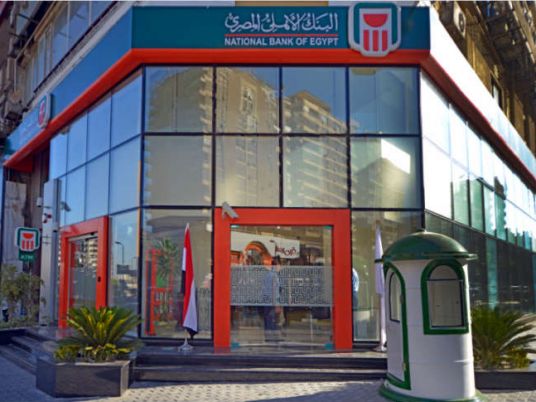On Sunday, Egypt is set to celebrate its first Labor Day in a post-Hosni Mubarak era that swarms with prospects for genuine democratization and social justice.
At this particular juncture, the resilient labor movement – which contributed immensely to the revolution that ended Mubarak’s 30-year reign – is faced with a plethora of challenges.
On one hand, the revolution has not fulfilled most of workers’ demands for minimum wages, managerial reshuffling and the sacking of “corrupt” managers in state-owned factories. On the other hand, workers aspiring to engage in politics must navigate through the restrictive clauses of the recently passed Political Parties Law, widely dismissed as discriminatory against the working class.
“On top of the challenges facing workers after the revolution is the existence of a Mubarak in each company and firm," says Kamal al-Fayoumi, a 46-year-old labor activist. "Unfortunately, the remnants of Mubarak’s regime are still there."
“I wondering why the Supreme Council of the Armed Forces (SCAF) and [Prime Minister] Essam Sharaf are keeping these people in office,” he adds.
The SCAF has been holding the helm of the state since Mubarak stepped down on 11 February after a sweeping 18-day uprising. The departure of the 83-year-old former ruler was not enough to contain the labor outrage that has manifested itself in thousands of protests for the last five years. Workers seized the political void that ensued to renew their activism by holding strikes in private and public enterprises.
In response, the government and the military passed a law in March to ban protests, citing threats to the national economy. Those who incite or call for such protests run the risk of being sentenced to at least one year in jail and fines of up to half a million Egyptian pounds, according to the decree.
“It is very strange to see the government pass a law that bans strikes after a revolution,” says Sameh Naguib, a left-wing sociologist with the American University in Cairo.
According to official statistics, Egypt’s labor force is estimated at over 26 million. Sixty percent of all workers are employed in the informal economy, meaning they do not receive minimum wages, health insurance, pensions, sick leaves, paid vacations, maternity benefits or trade union protection.
“If they want the wheel of production to be roll back, they should give workers their rights. The problem is not with workers but with the management of firms that has been reluctant to give them their rights for 30 or 40 years,” says Naguib.
The socioeconomic status of workers has been evolving since the 1952 military coup, which toppled the monarchy, expelled British occupation forces and instated an ostensible republic. Under Gamal Abdel Nasser’s socialist state, workers and the middle class were glorified as the vehicle of national development.
Nasser had nationalized all foreign and privately-owned enterprises and factories, turning workers into state employees. This formula ensured better living conditions, reasonable wages and a plethora of social benefits for workers.
Yet when Anwar Sadat came to power in 1970, he shifted Egypt’s political and economic leanings from the left to the right. He adopted an open-door economic policy, severed his ties with the Soviet Union, forged an alliance with the United States and made peace with Israel.
When Mubarak came to power in 1981, he followed suit. In 1991, Egypt concluded Economic Reform and Structural Adjustment Program (ERSAP) agreements with the IMF and World Bank. By virtue of these accords, the Egyptian government was expected to adopt neo-liberal economic policies and privatize hundreds of public-sector enterprises. By mid-2002, 190 firms were privatized.
With the political ascent of Mubarak's son Gamal, Egypt began to pursue privatization more boldly.
After one year in office, Ahmed Nazif’s cabinet – backed by Gamal Mubarak – sold out a record 17 enterprises. According to labor activists, many of these transactions were corrupt, resulting in large layoffs and depriving workers from their previous benefits.
“We want to bring back the companies, which were usurped under the corrupt era of Mubarak and the old gang, to the Egyptian people,” says Fayoumy, the labor activist and a longtime electrician with Misr Spinning and Weaving Company in the central Delta city of Mahalla al-Kubra.
To push for the confiscation of privatized public properties and the realization of other labor demands, Fayoumy, along with nearly 2000 other activists, are immersed in the process of founding the Workers Democratic Party (WDP). The would-be party envisages a democratic, civil egalitarian system a with state-regulated economy.
The WDP platform, which carries explicitly anti-capitalist tones, calls for halting privatization and nationalizing privatized public-sector companies. On the foreign policy level, the WDP program holds that the “humiliating” peace treaty with Israel should be abolished.
Under the current Political Parties Law, the WDP might not acquire official recognition easily for two reasons. First, the law bans parties formed on class basis. Second, party leaders are required to raise at least LE1 million to publish the name of at least 5000 founders in two widely-circulated dailies.
“This financial burden was put in the first place to defy the poor, workers and the farmers,” Fayoumy alleges. “This shows that the old mentality is still there and that the government is siding with businessmen rather than workers.”
Yet workers are expected to defy the legislation and launch their party as soon as they recruit at least 10,000 workers and 10,000 farmers, he says.
“We will not pay a penny, and we will say that our party already exists on the ground despite the law that does not reflect the people’s will,” he adds.
The WDP is set to offer the antithesis of the Free Egyptians Party, launched earlier this month by the telecommunication tycoon Naguib Sawiris. The party envisions a civil democratic state that would adopt a free market economy, encourage private investment and in the meantime ensure social justice.
“Businessmen wanted it to be only a revolution for democracy, but this is not the nature of this revolution, especially when you take into consideration the engagement of workers in it,” says Naguib, the AUC sociologist. “This is a revolution against neo-liberalism.”
Workers’ protests are believed to be the straw that broke Mubarak’s back. Few days before he stepped down, workers energized the revolt by holding strikes in different Egyptian governorates. By carrying a warning of sweeping civil disobedience, these protests expedited the former president's resignation.
“Workers should not leave politics to the elite, especially after the revolution,” says Naguib. “Workers need to have two arms: a political party and independent trade unions.”
For decades, the state has been manipulating labor unions as well as the Egyptian Trade Union Federation. In recent years, labor activists have been campaigning to form parallel autonomous entities to represent their genuine concerns.
Kamal Abbas, general coordinator of the Center for Trade Unions and Workers Service, along with other labor activists, is currently promoting the idea among workers. In the meantime, the group has filed a suit demanding the dissolution of the old Egyptian Trade Union Federation, which is still controlled by officials associated with the regime.
“The biggest challenge is building an independent trade union federation based on democracy,” says Abbas.
This endeavor is marred by a few obstacles, including “destructive” attempts by leaders of the old federation and workers’ ignorance of democratic rules, he says. He blames it on the influence of the old despotic culture on workers and a "blurred vision" of the role of labor unions.
“Workers are used to believing that unions are government entities that one joins to serve his personal interests," Abbas says. "We need to exert a lot of effort to convince workers that labor unions are organizations that seek to improve working conditions for workers."
Yet activists formed 12 independent unions with more than 250,000 members, he says.




